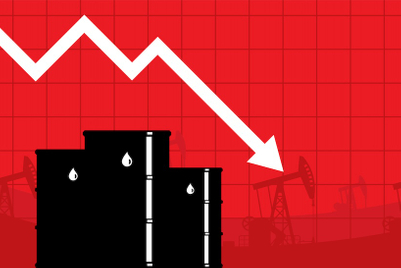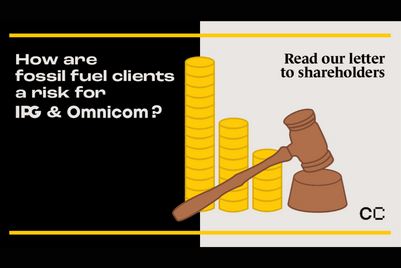
When we signed the Clean Creatives pledge in 2022, we made a clear choice. An official and public declaration of our commitment to decline all contracts with fossil fuel brands and front groups, it meant drawing a bold, palpable line between progressive sustainability communications and deceptive optimism that’s distracting the world from the pressing climate crisis. We were the first to take that step in Asia—a continent warming faster than the global average. And on this second anniversary of our signing, we can look back and agree that this was an important and valuable decision.
It reaffirmed a business principle we’ve long practised—to never partake in the dishonest greenwashing campaigns that have become commonplace among many of the world’s largest oil, gas, and coal companies. These campaigns deploy the creative efforts of PR professionals to downplay, disguise, and distract from the harm Big Oil continues to cause in pursuit of its profits—and at the expense of the general welfare of humanity and the natural world.
And in the two years that followed, we have witnessed cause for hope and momentum for change.
More agencies and creatives joined the movement to demand accountability and transparency from their PR agency leaders. More PR agencies realise the reputational and moral risks of working with fossil fuel polluters. More PR professionals simply do not want to work for Big Oil. And more consumers are rewarding brands that align with their values and aspirations.
Signing the pledge also connected us with some of the most progressive voices in the industry. From the US to Southeast Asia, through Cannes and New Delhi, we are forging collaborations with inspiring practitioners and opinion leaders who carry the same badge.
However, the truth is that the impact of the Clean Creatives Pledge as a whole remains relatively muted.
Amidst the urgent backdrop of climate change and sustainability emerging as polarising discussion topics among global leaders, the absence of real backlash against PR agencies maintaining ties with climate deniers is glaring. Despite the potential for engaging debates on whether comms professionals should cancel or counsel fossil fuel clients, the prevailing sentiment in the region is that it’s too distant from the forefront of environmental consciousness and decision-making to truly impact change.
The lack of earnest and bold commitments about the climate crisis at the recently concluded Davos was another clear indication that the increasing calls for energy transition and real climate action are not yielding immediate results. Yes, we’ve planted 12 billion trees in over 100 countries, but let’s be honest: Tree planting is now just a mere symbolic gesture to compensate for rampant deforestation, carbon emissions, and environmental degradation.
In fact, the wealth of fossil fuel companies continues to soar, and many of the world’s largest PR agencies still pocket millions from deals with major oil producers even as the planet experienced its hottest year on record.
A comprehensive study of public communications in 2022 from five oil and gas firms by climate finance thinktank InfluenceMap found that 60% of their public communications made at least one claim about companies’ positive climate actions. But on average, the five companies devoted only 12% of capital expenditure to low-carbon activities. With the support of globally influential—and regrettably award-winning—agencies and a US$750 million yearly budget for communications, it is hardly surprising that holding these companies accountable for greenwashing is challenging.
In Asia, 72 communications agencies signed 103 fossil fuel contracts between 2022 and 2023, according to Clean Creatives' F-List published last year. Here’s a hard pill to swallow: Most of these deals came from the countries where we’re trying to make a difference.
It’s disheartening to witness conversations around sustainability in the PR industry die down even before they’ve reached the right audiences or how procurement professionals, despite their interest in the pledge and knowledge of the F-List, do not necessarily find it a decisive factor in their decision-making processes. Even environmental non-profits, which one might expect to champion such initiatives, often overlook the importance of partnering exclusively with clean creatives and inadvertently engaging with F-List agencies. In some cases, we learnt that industry peers may not even know that they could check the credentials of their partners with their environmental impact and vet them accordingly.
But these are the very reasons we believe aligning with truth and authenticity isn’t just a choice but a moral imperative—particularly in a people-focused business.
What we consider our biggest takeaway thus far is the fact that we are creating a culture of creativity and integrity among our teams. The development of a playbook about authentic sustainability messaging a year after our pledge came to us as a natural initiative. This also empowered employees to create their own projects, leading to the opening of our in-office secondhand store. “The Good Shop,” in Thailand. Talented comms professionals understand the relevance of the Clean Creatives Pledge in our work, and aligning our commitment to sustainability with their ethical standards has made us better businesses.
Now, we’re called to take even bolder and bigger steps towards a future where the wonders of human creativity are no longer corrupted by those willing to put profits over humanity and the planet.
Let this be a rallying call for our PR industry peers to unite with us in taking this pledge.
Brian Griffin is Vero's CEO. Girish Balachandran is the founder and managing partner of On Purpose. Raphael Lachkar, Vero's chief operating officer, initiated Vero’s signature of the Clean Creative pledge. Vero and On Purpose are the first agencies in Asia to sign the Clean Creative pledge.



.jpg&h=334&w=500&q=100&v=20250320&c=1)


.jpg&h=334&w=500&q=100&v=20250320&c=1)




+(900+x+600+px)+(3).png&h=334&w=500&q=100&v=20250320&c=1)
.jpg&h=268&w=401&q=100&v=20250320&c=1)






